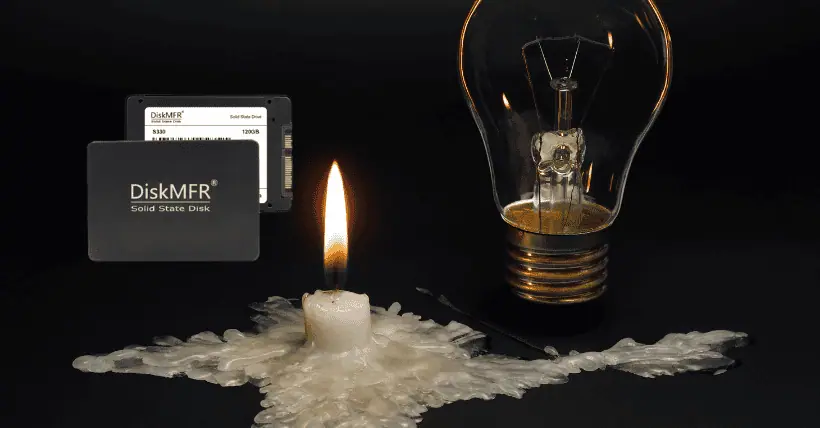Dear friends, today we’ll continue our discussion on SSDs. If you’ve built a computer in the past decade, chances are that you’ve already switched over to SSDs completely. Why? Because SSDs outperform traditional hard drives (HDDs) in terms of performance, durability, and convenience. Unless you require massive storage space, most people would choose an SSD without hesitation. At this rate, SSDs are sure to become the mainstream storage device in the future, without a doubt!
However, some people do have concerns about SSDs, particularly about whether they might lose data if the power is cut. While SSDs are indeed powerful, they use flash memory to store data, which is more susceptible to power issues compared to HDDs. Want to dig a little deeper into this?
The working principle of an SSD is quite interesting. It stores data using flash memory, which relies on non-volatile storage cells. These cells use underlying transistors and capacitors to maintain or release charges, representing “1” and “0”—our familiar binary system! It sounds sophisticated, but its working principle is really that simple. “Non-volatile” means that the data can be preserved even after the power is cut.
So, how long can data be retained after a power cut? Typically, an SSD in your computer will hold data without issue even if the power is off for hours, days, or even weeks. Even if your computer is shut down for several months, the SSD should function normally when you power it back up. However, if the duration exceeds a year, things might get tricky.
Imagine you replace your device, leaving the computer off for over a year. Or perhaps you have multiple SSDs used for cold storage, which you disconnect and store, only connecting them when you need to access the data. In these scenarios, due to long-term power loss, the SSD may start losing data. While it won’t cause the entire SSD to fail suddenly, the integrity of your data could be affected. The impact could be minor, or it could be devastating, depending on the type of data stored.
Of course, there’s no need to be overly anxious. While prolonged power loss could potentially damage SSD data, for the vast majority of people, this isn’t an issue at all. First, most users don’t need terabytes of storage, nor do they leave SSDs untouched for a year. We typically use one or two SSDs regularly, making it unlikely that they will remain powered off for long periods.
Secondly, if you do need cold storage, HDDs offer better value. They’re not only cheaper but also more durable. So, SSD data loss due to power cuts is really a rare, extreme situation that most users will never encounter. You can relax. At least during the natural lifespan of an SSD, your movies, photos, and game saves will be perfectly safe.
That said, it’s important to emphasize that whether you use an SSD or an HDD, regular data backups are crucial. Every type of drive carries its own risks, and you never know when one might suddenly fail. Data loss can happen at any time, for any reason. So, make it a habit to back up your data regularly—using cloud storage or external drives to safeguard your important files. Prevention is better than cure, and data is priceless, my friends!

Disclaimer:
- This channel does not make any representations or warranties regarding the availability, accuracy, timeliness, effectiveness, or completeness of any information posted. It hereby disclaims any liability or consequences arising from the use of the information.
- This channel is non-commercial and non-profit. The re-posted content does not signify endorsement of its views or responsibility for its authenticity. It does not intend to constitute any other guidance. This channel is not liable for any inaccuracies or errors in the re-posted or published information, directly or indirectly.
- Some data, materials, text, images, etc., used in this channel are sourced from the internet, and all reposts are duly credited to their sources. If you discover any work that infringes on your intellectual property rights or personal legal interests, please contact us, and we will promptly modify or remove it.



